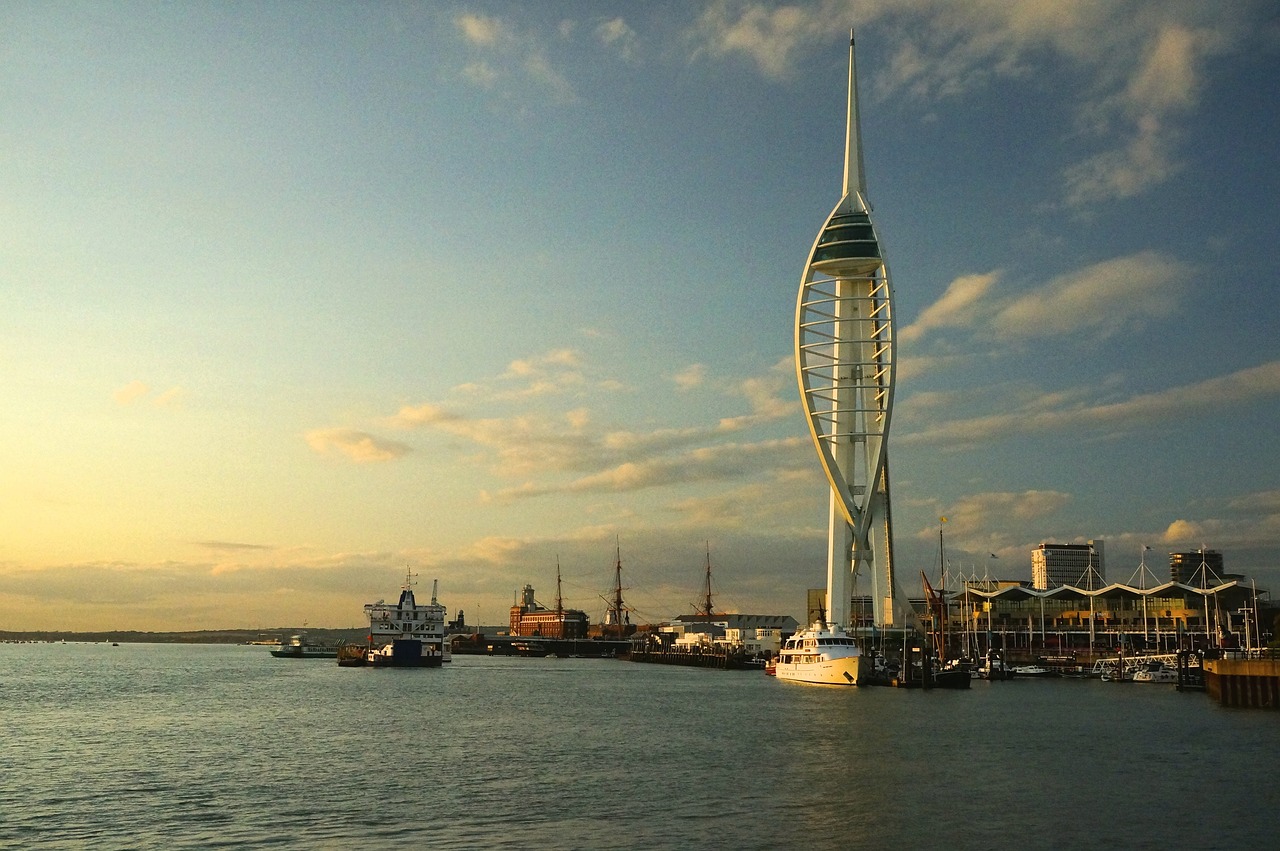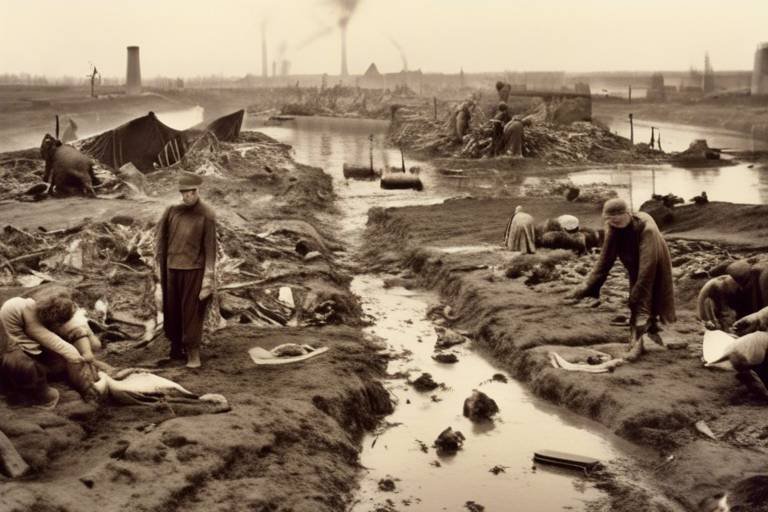The End of Apartheid in South Africa - A Journey to Freedom
South Africa's journey from apartheid to democracy stands as a testament to the resilience and determination of its people. The end of apartheid marked a significant turning point in the nation's history, paving the way for freedom, equality, and justice. Led by the iconic Nelson Mandela and other courageous leaders, the transition was not just a political change but a profound shift towards a more inclusive and fair society.
The origins of apartheid can be traced back to the systematic policies of discrimination and segregation imposed by the apartheid regime. Non-white populations faced severe oppression, with their rights and opportunities restricted based on their race. The deeply entrenched inequality and injustice fueled the resistance against apartheid, setting the stage for a prolonged struggle for liberation.
Nelson Mandela's leadership during this tumultuous period was instrumental in galvanizing the anti-apartheid movement. His unwavering commitment to justice and reconciliation inspired millions both within South Africa and around the world. Mandela's journey from a prisoner of conscience to the nation's first black president symbolized the triumph of hope over adversity and the power of forgiveness in overcoming deep-seated divisions.
The rise of anti-apartheid movements, including the African National Congress (ANC), played a crucial role in mobilizing opposition to the apartheid regime. These movements, supported by international solidarity efforts, exerted pressure on the apartheid government through various means, including boycotts, protests, and diplomatic interventions.
The establishment of the Truth and Reconciliation Commission in post-apartheid South Africa was a groundbreaking initiative aimed at healing the wounds of the past. By providing a platform for truth-seeking and forgiveness, the commission sought to foster national unity and reconciliation, acknowledging the atrocities committed during the apartheid era.
The path to democracy in South Africa was marked by significant milestones, including the drafting of a new constitution and the historic multiracial elections in 1994. The transition to democracy represented a triumph of collective will and a commitment to building a more inclusive and participatory political system.
Despite the end of apartheid, the legacy of this dark chapter in South Africa's history continues to reverberate in society, economy, and politics. The country grapples with persistent challenges of inequality, poverty, and social injustice, underscoring the ongoing need for transformative change and inclusive development.
The international response to the end of apartheid was a testament to the global solidarity with the anti-apartheid movement. Sanctions, divestment campaigns, and diplomatic efforts played a crucial role in isolating the apartheid regime and bolstering the morale of those fighting for freedom and equality.
South Africa's journey to freedom offers valuable lessons for the world, emphasizing the importance of resilience, forgiveness, and inclusive governance in overcoming deep-seated divisions and building a united nation. The legacy of apartheid serves as a reminder of the enduring struggle for justice and the transformative power of collective action in the pursuit of a more just and equitable society.

Origins of Apartheid
Exploring the in South Africa unveils a dark chapter in the nation's history marked by institutionalized segregation and discrimination. The roots of apartheid can be traced back to the early 20th century when the National Party came to power in 1948. This marked the official implementation of apartheid policies, which aimed to maintain white minority rule and enforce racial hierarchy.
Under apartheid, non-white populations, including Black, Colored, and Indian communities, faced systematic oppression and marginalization. Laws such as the Population Registration Act classified individuals by race, determining their social and economic rights. The Group Areas Act enforced residential segregation, forcibly removing non-white communities from designated white areas.
Moreover, the Pass Laws restricted the movement of non-white individuals, requiring them to carry passes to access certain areas. These oppressive policies entrenched racial divisions, perpetuating inequality and injustice across all aspects of society.
The apartheid regime justified its discriminatory practices through pseudo-scientific ideologies of racial superiority, promoting the notion of separate development for different racial groups. This ideology of segregation and white supremacy laid the foundation for decades of racial strife and resistance in South Africa.
As the apartheid system took hold, resistance movements emerged, challenging the legitimacy of racial segregation and advocating for equality and justice. The oppressed communities, led by figures like Nelson Mandela, Albertina Sisulu, and Steve Biko, mobilized against apartheid, risking their lives in the pursuit of freedom and dignity.

Nelson Mandela's Leadership
Exploring the historic transition from apartheid to democracy in South Africa, led by Nelson Mandela and others, and the long struggle for freedom, equality, and justice in the nation.
Understanding the roots of apartheid policies in South Africa and the systematic discrimination and segregation faced by non-white populations under the apartheid regime.
Nelson Mandela's leadership during the anti-apartheid movement was a beacon of hope in the darkest times. His unwavering commitment to justice and equality inspired millions around the world. Despite enduring 27 years in prison, Mandela emerged as a symbol of resilience and forgiveness. His presidency marked a new era for South Africa, emphasizing unity and reconciliation.
Examining the rise of various anti-apartheid movements, including the African National Congress (ANC), and the international solidarity efforts that pressured the apartheid government.
Discussing the establishment and impact of the Truth and Reconciliation Commission in post-apartheid South Africa, aimed at healing the nation through truth-seeking and forgiveness.
Exploring the steps taken towards achieving democracy in South Africa, including the drafting of a new constitution and the first multiracial elections in 1994.
Reflecting on the lasting effects of apartheid on South African society, economy, and politics, and the ongoing efforts to address issues of inequality and social justice.
Analyzing the global response to the end of apartheid, including sanctions, divestment campaigns, and diplomatic efforts that supported the anti-apartheid movement.
Drawing lessons from South Africa's journey to freedom, including the importance of resilience, forgiveness, and inclusive governance in overcoming deep-seated divisions and building a united nation.
Q: What was Nelson Mandela's role in the fight against apartheid?
A: Nelson Mandela was a key figure in the anti-apartheid movement, advocating for equality and justice for all South Africans. He became the first black president of South Africa after the end of apartheid.
Q: How did the Truth and Reconciliation Commission contribute to post-apartheid South Africa?
A: The Truth and Reconciliation Commission provided a platform for victims and perpetrators of apartheid-era crimes to share their stories, promoting healing and reconciliation in the nation.
Q: What were some of the international efforts to end apartheid?
A: The global community imposed sanctions, engaged in divestment campaigns, and supported diplomatic initiatives to pressure the apartheid government to dismantle the discriminatory system.

Rise of Anti-Apartheid Movements
The marked a pivotal moment in the history of South Africa, as various groups and organizations united in the fight against the oppressive apartheid regime. The African National Congress (ANC) emerged as a key player in the anti-apartheid movement, advocating for equality and justice for all South Africans. Alongside the ANC, other groups such as the Pan Africanist Congress (PAC) and the United Democratic Front (UDF) also played significant roles in mobilizing resistance against apartheid policies.
These movements utilized a combination of peaceful protests, civil disobedience, and international advocacy to challenge the apartheid government's discriminatory laws and practices. The global community rallied behind the anti-apartheid cause, with countries, organizations, and individuals around the world showing solidarity with the oppressed populations of South Africa.
International sanctions and divestment campaigns put pressure on the apartheid regime, isolating South Africa economically and politically on the world stage. The anti-apartheid movements leveraged this international support to amplify their message and push for meaningful change within the country.
Despite facing violent crackdowns and state repression, the anti-apartheid movements persevered, demonstrating remarkable courage and resilience in the face of adversity. Their commitment to the principles of justice, equality, and freedom inspired people both within South Africa and globally, igniting a powerful movement for social transformation.

Truth and Reconciliation Commission
The Truth and Reconciliation Commission (TRC) in South Africa was a pivotal institution established in the post-apartheid era to address the atrocities and human rights violations committed during the dark years of apartheid. Led by Archbishop Desmond Tutu, the TRC sought to uncover the truth behind the violence and injustices of the past, offering both perpetrators and victims the opportunity to share their stories in a public forum.
One of the unique aspects of the TRC was its emphasis on reconciliation through the power of truth-telling. Perpetrators of violence were given the chance to confess their crimes in exchange for amnesty, while victims and their families were able to confront their tormentors and seek closure. This process aimed not only to uncover the full extent of past wrongs but also to promote healing and unity in a deeply divided society.
The TRC hearings were broadcast on national television, allowing the entire country to witness the painful testimonies of those who had suffered under apartheid. This public acknowledgment of past injustices was a crucial step towards building a more inclusive and democratic society, where the voices of the marginalized could be heard and acknowledged.
Through its work, the TRC played a vital role in promoting national dialogue and understanding, challenging individuals and communities to confront the legacy of apartheid and work towards a shared future. While the TRC faced criticism and limitations in its scope, its impact on the collective memory of South Africa remains profound, shaping ongoing efforts to promote justice, reconciliation, and social cohesion.

Path to Democracy
The path to democracy in South Africa was a tumultuous journey marked by resilience, determination, and a collective desire for change. Following years of oppressive apartheid rule, the country embarked on a challenging but transformative process towards establishing a democratic society that values equality and justice for all its citizens. Central to this path was the drafting of a new constitution, which laid the foundation for a more inclusive and representative political system.
One of the pivotal moments in the path to democracy was the historic multiracial elections held in 1994, which marked the end of apartheid and the beginning of a new era for South Africa. These elections, in which all adult South Africans, regardless of race, were able to vote for the first time, symbolized a significant step towards building a united nation based on democratic principles.
The transition to democracy was not without its challenges, as deep-seated divisions and inequalities persisted in the aftermath of apartheid. However, through a commitment to reconciliation and inclusivity, South Africa was able to navigate these obstacles and move towards a more just and equitable society.
Key figures such as Nelson Mandela played a crucial role in guiding the country through this transition, emphasizing the importance of forgiveness, unity, and collective action in building a democratic nation. The path to democracy in South Africa serves as a powerful example of how a nation can overcome its past and forge a new future based on principles of freedom, equality, and dignity for all.

Legacy of Apartheid
The legacy of apartheid in South Africa is deeply ingrained in the fabric of society, leaving a lasting impact on various aspects of the nation. The systematic segregation and discrimination enforced during the apartheid era have left scars that continue to affect the country's social, economic, and political landscape.
One of the most significant legacies of apartheid is the persistent inequality that permeates South African society. The apartheid regime institutionalized racial disparities, resulting in unequal access to resources, opportunities, and basic services based on skin color. Despite the end of apartheid, these inequalities persist, contributing to ongoing challenges of poverty, unemployment, and social unrest.
Furthermore, the legacy of apartheid is evident in the economic disparities that continue to divide the country. The apartheid era entrenched a system of economic exploitation and marginalization, with non-white populations bearing the brunt of economic oppression. While efforts have been made to address economic inequality through policies such as Black Economic Empowerment (BEE), the effects of apartheid-era economic injustices are still felt today.
Politically, the legacy of apartheid is reflected in the complex dynamics of South Africa's democratic governance. The transition from apartheid to democracy was a monumental achievement, yet the legacy of past divisions and injustices lingers in the political sphere. Issues such as corruption, lack of accountability, and political polarization can be traced back to the legacy of apartheid, highlighting the ongoing challenges of building a truly inclusive and representative democracy.
Moreover, the legacy of apartheid extends to the realm of social relations and identity in South Africa. The deep-seated divisions sown by apartheid continue to shape social interactions and perceptions, creating barriers to genuine reconciliation and social cohesion. Overcoming these divisions requires a concerted effort to address historical injustices, promote dialogue, and foster understanding among diverse communities.

International Response
When apartheid finally came to an end in South Africa, the world watched with bated breath, ready to see how the international community would respond to this monumental shift in the country's history. Countries around the globe had long been involved in the fight against apartheid, with many imposing sanctions and participating in divestment campaigns to pressure the apartheid government to change its ways. The United Nations played a crucial role in condemning apartheid as a violation of human rights and calling for its dismantling.
One of the most significant international responses to the end of apartheid was the lifting of sanctions and the reintegration of South Africa into the global community. This move signaled a recognition of the progress made in the country and a willingness to support its transition to democracy. Diplomatic efforts were also crucial in facilitating the peaceful transfer of power and ensuring a smooth transition to a post-apartheid era.
Furthermore, the international community continued to support South Africa in its efforts to address the legacy of apartheid and build a more inclusive society. Aid programs, investment initiatives, and educational exchanges were established to assist in the country's reconstruction and development. The world understood that the end of apartheid was not the end of the struggle, but rather the beginning of a new chapter in South Africa's history that required ongoing support and collaboration.
Overall, the international response to the end of apartheid exemplified the power of global solidarity and cooperation in promoting justice and equality. It showcased how countries can come together to support a nation in transition and help pave the way for a brighter future. South Africa's journey from apartheid to democracy served as a beacon of hope and inspiration for people around the world, demonstrating that change is possible, even in the face of seemingly insurmountable challenges.

Lessons Learned
Exploring the historic transition from apartheid to democracy in South Africa, led by Nelson Mandela and others, and the long struggle for freedom, equality, and justice in the nation.
Understanding the roots of apartheid policies in South Africa and the systematic discrimination and segregation faced by non-white populations under the apartheid regime.
Highlighting Nelson Mandela's role as a prominent anti-apartheid activist, his imprisonment, and eventual presidency, symbolizing the fight against injustice and the pursuit of reconciliation.
Examining the rise of various anti-apartheid movements, including the African National Congress (ANC) and the international solidarity efforts that pressured the apartheid government.
Discussing the establishment and impact of the Truth and Reconciliation Commission in post-apartheid South Africa, aimed at healing the nation through truth-seeking and forgiveness.
Exploring the steps taken towards achieving democracy in South Africa, including the drafting of a new constitution and the first multiracial elections in 1994.
Reflecting on the lasting effects of apartheid on South African society, economy, and politics, and the ongoing efforts to address issues of inequality and social justice.
Analyzing the global response to the end of apartheid, including sanctions, divestment campaigns, and diplomatic efforts that supported the anti-apartheid movement.
Drawing lessons from South Africa's journey to freedom, including the importance of resilience, forgiveness, and inclusive governance in overcoming deep-seated divisions and building a united nation.
Frequently Asked Questions
- What was apartheid in South Africa?
Apartheid was a system of institutionalized racial segregation and discrimination that existed in South Africa from 1948 to the early 1990s. It enforced a social and political hierarchy based on race, with the white minority holding power and privileges over the non-white majority.
- Who was Nelson Mandela and what was his role in ending apartheid?
Nelson Mandela was a prominent anti-apartheid activist and the first black president of South Africa. He played a crucial role in the fight against apartheid, enduring imprisonment for 27 years before becoming a symbol of reconciliation and unity in the nation.
- What was the Truth and Reconciliation Commission?
The Truth and Reconciliation Commission was a judicial body established in South Africa after the end of apartheid. It aimed to uncover the truth about past human rights abuses, provide a platform for victims to share their stories, and promote national healing and reconciliation through forgiveness.
- How did the international community contribute to ending apartheid?
The international community played a significant role in ending apartheid through various means, including imposing economic sanctions, divesting from South Africa, and showing solidarity with anti-apartheid movements. This global pressure helped isolate the apartheid regime and push for democratic reforms.
- What are some of the lasting effects of apartheid on South Africa?
The legacy of apartheid in South Africa includes persistent social and economic inequalities, political challenges, and ongoing efforts to address issues of racial discrimination and reconciliation. The effects of apartheid continue to shape the country's social fabric and development trajectory.



















